|
Essential Reading for 'Regeneration' Communities
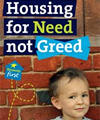 |
Housing
for Need not Greed is a new publication from Tenants
First that highlights the collapse of the PPP model
for regeneration and demands a better equation for
the building and regeneration of Communities. "The
fear and quality of life is far worse than any time in the
past. The conditions in the estates in Limerick and Dublin
are now far worse than they were when regeneration was first
mentioned"
|
|
|
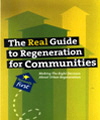 |
In 2006Tenant’s
First produced The Real Guide to Regeneration for
Communities. The
aim of this document is to ensure that Communities are empowered
to make a clear rational decision about the future of their
own areas. That means to begin with making a decision about
whether to say yes or no to the regeneration - degeneration
agenda.
|
|
|
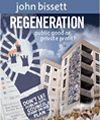 |
Free
preview of Chapter 9. Regeneration: public good or private
profit, documents the trials and triumphs of the regeneration
process at St Michael's Estate, Inchicore, Dublin, Ireland
from the community perspective. Dr Bissett uncovers the
mechanics of Public-Private Partnerships (PPP) as a model
and names the deliberate exclusion of a Community. Learn
more about the book.
|
|
|
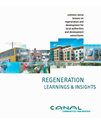 |
Prouduced
by Dublin's Canal Community Partnership, Regeneration:
Learnings & Insights is presented as "common-sense
lessons on regeneration and development for local authorities
and development consortiums". There is an address
on page 4 by then Assistant Dublin City Manager, Brendan
Kenny (now CEO of Limerick's Regeneration Agencies)
|
|
|
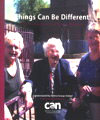 |
In
2007, Dublin's Fatima Groups United commissioned
the Community Action Network (CAN) to produce Things
Can Be Different, which further examines best practice
and learning’s. There is plenty of advice for Communities
when it comes to dealing with poweful bodies and state agencies
and the the types of bad behaviour to watch out for, such
as "Suggesting communication through informal arrangements"
(one on one's, friendly chats etc.)
|
|
|
 |
COMMUNITY
PARTICIPATION – WHO BENEFITS? By Paul
Skidmore, Kirsten Bound and Hannah Lownsbrough. This report
from the UK explores whether policies to involve people
in making decisions about their own communities are effective
in building strong social networks. It address issues of
interest to people at all levels of governance, from politicians
and policy makers to those campaigning on local issues.
Supported by the Joseph Rowntree Foundation.
|
|
|
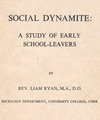 |
More
insightful than the Fitzgerald Report and written
43 years ago by Fr. Liam Ryan, Social Dynamite: A Study
of Early School-Leavers, argues for the urgent need
for the social regeneration of a newly built Council estate "situated in the suburbs of one of our larger cities",
which he calls Parkland to avoid adding to the "amused
hostility" of "the better educated classes" towards the estate. The city in question is Limerick and
the estate is Ballinacurra Weston. |
|
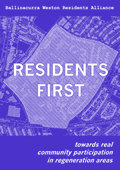 |
Residents
First- towards real community participation in regeneration
areas' was produced by the
Ballinacurra Weston Residents' Alliance (BWRA) in association
with Limerick Regeneration Watch. It highlights the fraudulent
nature of the Limerick Regeneration Agencies engagement
with communities under their remit and charts the history
of that engagment in Ballinacurra Weston. It argues for
the urgent need for change and real community participation. |
|
|
|

